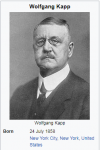The Successful Follies of Manuel Komnenos
Manuel Komnene was a man who restructured the world in his own image had the many gambles he'd taken failed perhaps Byzantium would have suffered from the extent of his vision. The remarkable thing, however, is that every great project he undertook, no matter how seemingly impossible, always paid off.
Also known as Béla III of Hungary, Alexius II was one of Manuel's great projects - a Prince of Hungary, adopted into the Byzantine Empire, renamed to fit into the scheme of the Prophecy of Blood - that the Komnenian Emperors would have names that spell out the Greek word for blood. Under Alexius II The Roman Empire achieved its greatest territorial extent in the 2nd millennium AD. This run-down looks at the conquests of Manuel and Alexius, and the extent to which they lasted.
Religions
The Roman Catholic Church (Latin Rite): Gradually creating an acceptance of Church Unity was a major project through the reign on Manuel - he succeeded, somehow, in getting recognition from the Pope as Emperor of the East and secured communion between the Melkite and Latin churches. Hungary primarily followed the Latin Rite.
The Roman Catholic Church (Melkite Rite): The dominant faith in Byzantine lands. Church unification was close to a diplomatic miracle and the Hungarian Komnenoi would make every effort to accommodate Latin theology. This was not well received. Church Unity would be repealed in the 1270s under the Doukas Dynasty. However by then Melkite Rite Catholics were established and there are still villages in Greece (and a very weird village in Northern Atlantis) where it is the dominant faith, causing administrative headaches to countless bishops over the years.
Melkite Old Believers: People who rejected the unificaton. Melkite congregations held on through what they still call "the heresy". In Russia, where the unification was never fully accepted or policed it would become the dominant branch of Orthodoxy from the 1270s onwards. The Byzantine branch... not so lucky. Some Old Believers rejoined the Orthodox Church as a formal autonomous grouping, others rejected that. The ecumenical mess caused schisms throughout the 13th and 18th centuries. Russian religious life is still dominated by Melkite Old Believers, but in Greece and Anatolia the isolated Old Believer sects are insular, highly controlling, and weird.
Islam: Re-Christianising Anatolia was a challenge due to its huge area - Manuel managing to get the church to allow for converts to renounce simply Mohammed and not Allah helped but a lot of compromises had to be made along the way. Islam very much survived under the Byzantine Reconquest and in the Crusader states though centuries of occupation. Turkic and Levant Islam is a very specific kind of tradition that ha strong elements taken from Christianity in terms of iconography and culture.
Anatolia
Iconium: The Capital of the Sultanate of Rum fell to the Byzantines at the start of the Second Crusade in 1146, before the Latins arrived on the scene. Manuel dedicated the victory to his new bride. Iconium accepted Roman taxation relatively readily and the Turks were ejected from the city. Iconium would remain loyally Roman until the 16th century.
The Armenian Principality of Cilicia: Cilicia first paid homage to Manuel Komnenos in 1158 and this was renewed continually throughout Alexios II's reign with little incident. Cilicia would remain a loyal ally of the Byzantines until it became a vassal of the Mongols in 1243.
Ancyra: The Seljuk Turks would hold on to Ancyra till the Third Crusade in 1176, which was another of Manuel's gambles. Leading a huge army through dangerous terrain far from support and resupply was dangerous, but with a truly remarkable outpouring of support from Latin Christendom, it was possible. Ancyra would remain a loyal until its conquest by the Mongols in the 1240s. After this it became the core of the Kingdom of Anatolia.
Amasia: The Danishmends held out until 1180 but the Third Crusade would see them too removed from the board. Their conquest would leave Byzantium in control of the Anatolian Peninsula. Islam held out better there than in the rest of Turkish occupied Anatolia. It was occupied by the Mongols in the 13th century was gradually incorporated into the Kingdom of Anatolia.
Outremer
Principality of Antioch: Aligned itself with Manuel at the start of the Second Crusade and was a key Byzantine ally and vassal in Outremer. It would last until the Mongol Conquest of 1260 and was then swallowed into Jerusalem.
County of Edessa: The Crusader state was retaken with Byzantine help in 1148 by Manuel and the Second Crusade. As a vassal it was particularly vulnerable to Seljuk raids but in their weakened state it held on till the Mongols invaded and it never be retaken by Christendom.
County of Aleppo: Retaken by Alexios II in 1183, Aleppo was Alexios' big conquest of the Middle East. The state was always fragile, however ironically it passed into the hands of the Jerusalem and would remain within Christendom until the 15th century.
Duchy of Egypt: Another of Manuel's gambles - the conquest of Egypt in 1161 was a combined effort by Byzantium and the Crusader states and formed a major bulwark against Islam. Its conquest was a miracle and required careful maintenance in Alexios' reign. It was retaken by Muslims during the Fourth Crusade against the Mongols.
County of Tripoli: Technically a vassal of Jerusalem. But in the reign of Alexios II that made it practically a vassal of Byzantium. It survived the Mongol Invasion through the combined forces of the Forth Crusade and maintained very nominal independence until it was incorporated into Jerusalem in the 14th century.
Kingdom of Jerusalem: Manuel's ally and, arguably after his recognition as Eastern Emperor, vassal, Jerusalem had its heyday after the Fourth Crusade and would eventually lose its independence to Spain in 1544.
Italy
Sicily: Manuel retook Sicily from the Normans in 1155 with the help of the Holy Roman Emperor and the Venetians. It was taken by the Spanish in 1492.
Catepanate of Italy: Another of Manuel's risky gambles - the Catepanate was reconstituted as a Byzantine province in 1158 following reconquest from the Normans. With them dealt with it would remain Byzantine until the invasion of the Spanish in 1519.
Papal States: In a remarkable diplomatic coup, Manual managed to get the pope to recognise the authority of Byzantium, provided them with miitary support to conquer southern Italy and restored church unity, and until the 1270s it was buffered by two allied powers - the Western (Holy) Roman Empire in the north and the Eastern (Byzantine) Roman Empire in the south. The alliance with Byzantium ended with church unity
Venice: In 1171 Manuel arrested all Venetians doing business in Byzantium, confiscated their property and drove them into the sea - this ended their alliance but, remarkably, had little impact on his standing with the Latin powers. Under Alexios II Venice became a Hungarian vassal.
Europe
Hungary: Alexios II maintained a personal union between Byzantium and Hungary - a remarkable feat given its initial unpopularity in both states. Hungary would expand under the Komnenoi, taking in Croatia and Dalmatia and Zader. The Empire he built would outlast, and surpass, Byzantium
Halych and Moldavia: In 1165 Hungary and Halych supported the rebellion of Andronikos Komnenos and his attempt to usurp Manuel. Manuel ended the rebellion and bought Halych into alliance. He also pardoned Andronikos - a decision that is notable for having absolutely no negative consequences whatsoever. Halych expanded into Moldavia.
Serbia: Became a Byzantine vassal in 1150 and remained so until 1244. It was bought into the Byzantine Empire in 1409 and remained so until 1448 when it returned to Hungary's sphere of influence
Vlachia: Vlachia was conquered by Alexios and was reconstituted into the Byzantine Empire, though Hungarian influence remained strong. It was lost to Hungary in 1310. It was held by Byzantium in 1401-1442 then fell back into the Hungarian sphere of influence.
The Imperial Core: Following the fall of its external empire in 1519 Romania held on to Hellas, Dyrrachium, Western Anatolia, Crete, Cyprus, Trebizond and of course, Byzantium. Crete and Cyprus were lost in the Spanish Wars of 1526-1541. 1566 saw the Bulgarian sack of Constantinople - the Queen of Cities, which Manuel had defended from the Latins and the Turks, fell to relatively minor upstart power with cannons. It would be retaken in 1574 but Byzantium would never again be a major power. From 1664 Byzantium was a Russian puppet and in 1712 the city was taken under direct Russian rule with the King of Russia styling himself Emperor of the Eastern Romans.





